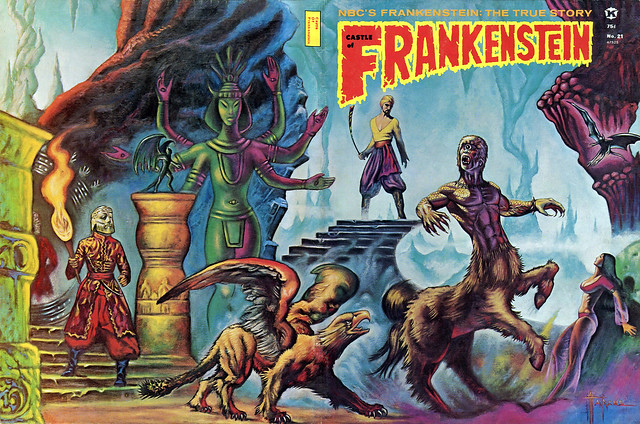Wednesday, 13 April 2011 08:55
By Allen L Jasson
Introduction
"Circling the Earth in my orbital spaceship I marveled at the beauty of our planet. People of the world, let us safeguard and enhance this beauty — not destroy it! -Yuri Gagarin, the first man in space, upon his return
Here on the sub-tropical, eastern coast of Australia, as the Japanese Nuclear Disaster unfolds, the ambience of quiet, solemn calm and blissful ignorance all around me is somehow, paradoxically, a cause for inversely proportional personal distress.
Thanks to Adam Curtis and his BBC documentary
The Century of the Self (See
here ) we can at least have the luxury of some understanding of how it came to be that we have a world run by
psychopathic criminals leading a collectively insane species on a wild rampage to self-destruction. The documentary is based on Stuart Ewen’s book
PR! A Social History of Spin, which focuses on the family of Sigmund Freud and how they have influenced the way corporations and governments have increasingly, manipulated the masses throughout the 20th century – to the present madness.
So of course, the tranquillity I am witnessing here in Australia derives from the way the Nuclear Disaster is subtly presented as a kind of natural extension of the earth quake and tsunami; a terrible, unfortunate but inescapable fact of life. Or perhaps it’s just that there is too much distraction in the excitement and drama currently unfolding as the psychopaths unleash another round of shock and awe violence to “liberate” Libya. There is some encouragement to be found in the fact that 2,000 Australians recently attended a meeting in Sydney town hall to discuss the Australian government’s shameful dereliction of its responsibility to protect Australian citizens viciously pursued and ill-treated by the US government, our “allay”. However, the other 4.5 million people of Sydney were at home munching their McDonalds and soaking up American “entertainment” from their television sets.
Even the news that the Japanese Nuclear and Industrial Safety Agency (NISA) has increased its assessment of the Fukushima Daiichi nuclear power plant to level 7, the most serious level, rating it as a "Major Accident" with the final radiation output expected to exceed that of Chernobyl, has come as a kind of anti-climax. After all, “who is this NISA anyway?” and “it’s like the Richter Scale, it’s only a number!”.
But there
is some quite significant concern, I have to acknowledge,
about its impact on volleyball, reminding me of the occasion when the “Sunrise” programme disparaged me for disturbing their tranquillity and giving offence to the many Australians comfortably ensconced at the Tennis in Kooyong enjoying their favourite pastime (spectator sports) by public reference to the (then) 900,000 deaths caused by the
World’s #1 Terrorist in Iraq. So very un-Australian!
Nevertheless, for anyone willing to continue thinking about the problem, the unfolding Japanese Nuclear Disaster provides many insights into how far the rabbit-hole goes.
Relax, All is Well
In the 1970s, when Australia “anguished” briefly over it’s entry into the nuclear industry as a supplier of uranium an Australian Prime Minister asserted “we have the technology to deal with nuclear waste”. However, a professor of nuclear physics at Australian National University mockingly responded with a request for pointers to the scientific literature, as he was not aware of it. It was a candid insight to how the logic is lost between the conception and the implementation; but it changed nothing. Another of Australia’s visionary leaders attracted derision in recent years by offering Australia as a nuclear waste dump and self-righteously defending greed as the sole motivation for doing so; an insight to how the morality is lost.
Attuning to the nuclear energy debate over the years I have often heard critics of the industry mocked and scoffed at by “experts” who, with brash confidence and a great deal of hyperbole asserted the wondrous marvels of stringent, high-tech, multi-level safety protections being applied by the nuclear industry. This arrogant self-assuredness is echoed in a recent article titled
Why I Am Not Worried About Japan’s Nuclear Reactors by Dr Josef Oehmen.
The article is written with a tone of authority although the author’s qualifications are only vaguely described as “a research scientist at MIT, in Boston. He is a PhD Scientist, whose father has extensive experience in Germany’s nuclear industry.”. After a first reading I was incredulous at the naivety with which the ineptitude of the industry technologists was exposed and needed a second reading.
The author describes a two-level heat generation by the reactor, the greater of which is generated in normal operation of the reactor and transformed to power supply of the grid. It ceases when the reactor automatically shuts down in the event of a disaster such as earthquake, leaving only the first layer; a residual 7% that continues after the reactor shuts down and which must be dissipated to avoid damage to the reactor and possible meltdown. The power supplies to systems that provide this cooling in an emergency shut-down are described in three levels of reserve power, the first being an external power supply (since the reactor’s own power generation is unavailable).
Should this fail, there are back-up generators and should these fail there is a battery power supply – an astonishingly meagre 8 hours of reserve power!! Of course, all three levels failed.
Reading this, I was incredulous not only at the obvious fragility of these provisions (especially after all the grandiose claims of the industry), but also at the failure of the designers to build a fail-safe around features inherent in the fail situation. By this, I mean the kind of measures applied for example, in the safety provisions in an elevator. Here, if operational and safety components fail and the lift capsule is in free-fall a roller on the outside of the capsule, in contact with the lift shaft, generates sufficient centrifugal force to operate a safety brake (i.e. the kinetic energy of free-fall is both the trigger and the energy source of the safety feature).
Here we have a need for a safety feature, the function of which is to dissipate heat energy, the residual 7% that persists after shutdown. I would have thought it self-evident that this circumstance should dictate a safety system, which must draw off at least 7% of the energy generated by the reactor as part of normal operation, is based on separate, independent mechanism and should use this energy to do three things:
- Generate electricity into the grid.
This being the target of the whole of its output during normal operation but also being optionally able to supply the grid emergency power when the reactor is shut down or be diverted from the grid altogether if the grid is unsafe. - Supply electricity to power its own primary operation pumps.
This being optional and independent of A (above) - Drive its own secondary fail-safe pumping systems by direct, mechanical means.
This, in the event of failure of its own electric pumping systems.
(i.e. turbines driven by steam generated by the heat of the reactor).
This mechanism naturally entails a water reservoir and cooling tower sufficient to dissipate, if necessary all of at least 7% of the energy generated by the reactor that continues after the reactor shuts down.
Naturally, I acknowledge that I am neither a rocket scientist nor a nuclear energy technician and that attempting to prescribe at this level of detail may be naïve but my description is intended only to sketch the possibilities and illustrate the reasoning. Nevertheless, it does make clear that the sound principle of basing safety measures on the intrinsic features of the situation is both possible and necessary; however, omitted.
Given that the “experts” who have for so long strutted about with a cocky air of certainty are now so obviously clutching at measures so gross and desperate as dousing the heat with seawater from helicopters and fire hoses and with such clumsy consequences as dispersing radioactive material into the atmosphere for miles around, even into jet-streams that cross the pacific and into the ocean itself, it becomes abundantly clear that the industry is not competent to conduct itself safely, that all is
not well and there is absolutely
no cause to relax (
Who needs Terrorists?).
But is this any surprise?
I was recently reminded that when the first nuclear explosion was tested scientists were uncertain and believed there was a risk the reaction would just keep going (i.e. turning the earth into another Sun – a nuclear inferno) – and the government knew this was so. I first heard of this in my high school years, back in the days when we saluted the flag each morning and sang “God Save the Queen”. It was presented (and obviously included in the curriculum for this purpose) as testimony to the courage and bravery of the men and the risks they had to take to defeat the “evil Japanese”.
How the world has changed!
This sentiment was echoed when David Suzuki posed a dilemma for Australian industrialists in a televised discussion – a highly profitable enterprise has a very small but real risk of causing a major environmental catastrophe affecting all life on earth. His industrialists were not only unanimous, they received significant support from the audience.
Yet that insanity is hardly different, even perhaps a shade less culpable, than the one of dispersing Depleted Uranium among the dust of the deserts of Iraq and Afghanistan as a high molecular weight ballistic material, or giving open license to the vindictive government of racist war criminals of Israel to continue their genocide in Palestine.
Beyond The Reality of Meltdown
Here, amid the tranquillity of Australian political sedation, where there is still a mild flutter of elation after the recent Oprah visit and the only thing truly mourned is the loss of “The Ashes”, it may be fair to say that the most significant newsworthy event and cause for national exultation is the reception our Prime Minister has received in the US Congress. However, for those of us still reflecting on the reality it is probably most appropriate that our Iron Lady should stand out in such florid distinction – being thrice steeped in blood as a major supplier to the world of Coal, Uranium and Troops serving principally as Moral Endorsement for the ongoing wars for OIL.
If Australians are giving any thought at all to such matters then it must seem that we are between a rock, a very dangerous place and a very immoral place with seemingly no way out. Faced with the risks of Climate Change, erasing life from the earth in a Nuclear Armageddon and the daily slaughter of innocents by barbaric violence it must seem that there are no free lunches in the world of energy. Thank God for a reassuring media and the universal approval of being always cheerful, positive and optimistic.
In Fantasy Land all the talk is of alternative energy sources. There will be Wind Farms that will one day disfigure every landscape, Tide Barriers that will one day block every estuary and bay essential to ocean ecology and vast acreages of solar collectors. Nowhere is it permitted to assert that all of these Alternative energy sources are in fact Additional energy sources and our insatiable demand will always be for more. Nowhere is it permitted to consider the unthinkable – that perhaps we need to Reduce our energy consumption.
The Rabbit-Hole
When we come to consider why it is that we have such outrageous and insatiable energy demands we embark, Alice-like, on the journey down into the rabbit-hole.
Our cities are shockingly inefficient.
In Australia the situation is worse than in many other places. A reckless suburban sprawl has decimated wildlife, destroyed forests, spoiled coasts and consumed most of the richest agricultural land that forms a small percentage of the continent’s total land area. Almost every house is freestanding on a separate, fenced block of land. A driveway serves each house; every driveway is served by a street, every street by a main road, every main road by a highway and every highway by a freeway. Space utilisation is massively expanded to accommodate the motorcar and the expanded utilisation of space, in turn, by increasing distance between centres, forces dependence on the motorcar – a circle as stupid as it is vicious.
This scheme of things is rigidly enforced by a system of local planning and development approvals that is often corrupt and tied to a process of wealth generation for those who dominate it. Farmers who have neither the financial resources nor the political clout to achieve the re-zoning of the land sell large farms to developers and speculators who do. Developers design and implement road, sewage and utility systems to maximise profit from the sale of ever-smaller land parcels. The nurtured and still sacred Australian dream of home ownership with the space and privacy of a back yard has dwindled to the absurdity of a postage-stamp sized patch of garden behind a house that almost touches the eaves of the neighbours either side while an irrational and unusable front garden remains mandatory as a further expansion of wasteful space utilisation.
“Experts” prohibit discussion of alternatives at the “official” level; the town planners, councillors and developers who are utterly committed to preserving the status quo. All discussion at the informal, public level terminates at the point of assertion that no-one is willing to give up their cherished cars and the dream of privacy and independence in having their own back yard, even though the reality has been degraded to the point of a ludicrous absurdity and the writing is on the wall for car-lovers. When petrol is prohibitively expensive these suburban developments will be unbearable places to live; veritable open prisons, which perhaps they already are.
We have only ourselves to blame.
________________________________________________ ________________________________________________ "Palestine is the heart of Arab countries" - PalestineFreeVoice
_____________________________________________


















